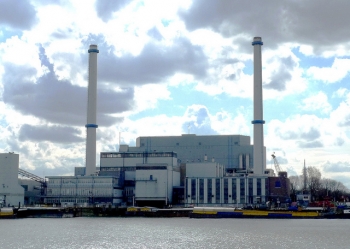Rising Business Electricity Rates Crippling Business Growth

Each year as the winter months approach, Britons brace for the announcement of energy price hikes from the country's major six suppliers. Price hikes each winter have become a way of life for Britons during the past three years in particular, but represent a larger trend in general. Frustration is growing across the UK as report after report comes out showing that while many of the major suppliers have seen wholesale prices fall, rates customers pay continue to climb.
While the focus for many remains on the impact rising energy prices have on household budgets, there should be equal concern for the impact that rising prices have on businesses. A recent report from GreenWise Business (greenwisebusiness.co.uk) shows that businesses both large and small are increasingly concerned about rising energy costs.
Shocking Finds
In the survey conducted by One Poll, 83% of businesses in the UK expressed concern about missing growth targets because of energy costs. Large corporations and small businesses alike have focused on the impact of energy costs on business. As prices go up, companies are considering scaling back, letting workers go, and slowing the UK economy in the process.
As owners compare business electricity rates to their finances, they are finding that energy rates are hampering growth and threatening profitability. The poll surveyed 200 business owners from sectors including finance, hospitality, property, construction, and government and public services with annual bills between £30,000 and £1 million.
What was found was that 83% of businesses expect to miss growth targets in 2013 because of rising energy prices. An additional 43% of businesses expected to miss growth targets by 10% because of energy, and even more (60%) businesses said that employee reductions were a possibility as a result of rising prices.
The survey also found that small businesses in particular have identified energy prices as the number one barrier to growth. Roughly 47.8% of small businesses surveyed during the third fiscal quarter identified energy rates as a significant, and top, barrier to future growth.
In the past few weeks the UK's top suppliers have announced price increases that vary from 3.9% to 10.6%, and those come on top of increases that businesses have already had to face this year. During the previous 12 months, some businesses have seen their gas and electricity rates increase 12% and 13% respectively. Keep in mind, this increase is in addition to the newly announced increases.
Can Comparing Business Electricity Rates Help?
Much like residential customers, businesses can use comparison shopping sites to compare business electricity rates and try to find a cheaper tariff with a different supplier. The problem for businesses is that price hikes of the past few years have outstripped the pace of inflation. Despite a cheaper rate somewhere else, businesses might still face energy prices that cripple growth potential.
There is reason to believe that comparison shopping can save businesses some money though. The trick is to make the system work out by using it as an informed consumer. Business owners need to have a grasp on their current usage rates and be able to recognize if usage rates are bound to increase in the future.
For comparison shopping to work, it is also helpful for businesses to understand what extra features can add to their bill or help them save. Consider the following features:
- Multi-site: Larger businesses with multiple sites across the country have different needs than other businesses, and suppliers need to know that. Extra costs might be involved for the maintenance and supply of electricity to various locations.
- Renewable Energy: Suppliers and businesses alike can be constrained by renewable energy quotas, and this could drive up prices.
- Dual Fuel: Companies that currently receive gas and electricity from separate suppliers may be able to save by switching to one supplier for both and receiving a dual fuel discount.
- Varying Tariffs: Fixed rate tariffs are the most common choice in the business world, but for small businesses in particular it might be possible to save with a different tariff plan.
Preparing for the Future
Businesses need to prepare for the fact that rising energy prices are not a fad at the moment. With government regulations calling for "lights on" policies while cutting emissions and increasing renewable energy quotas, suppliers are going to keep increasing costs. There is some reason for hope though.
The Labour Party is making noise in requesting energy price freezes until 2017. Should the Labour Party come to greater power in the next election, such price freezes would be more likely to become a reality. As a result, the multiple increases businesses have faced recently could be an overreaction in the industry ahead of possible price freezes.
